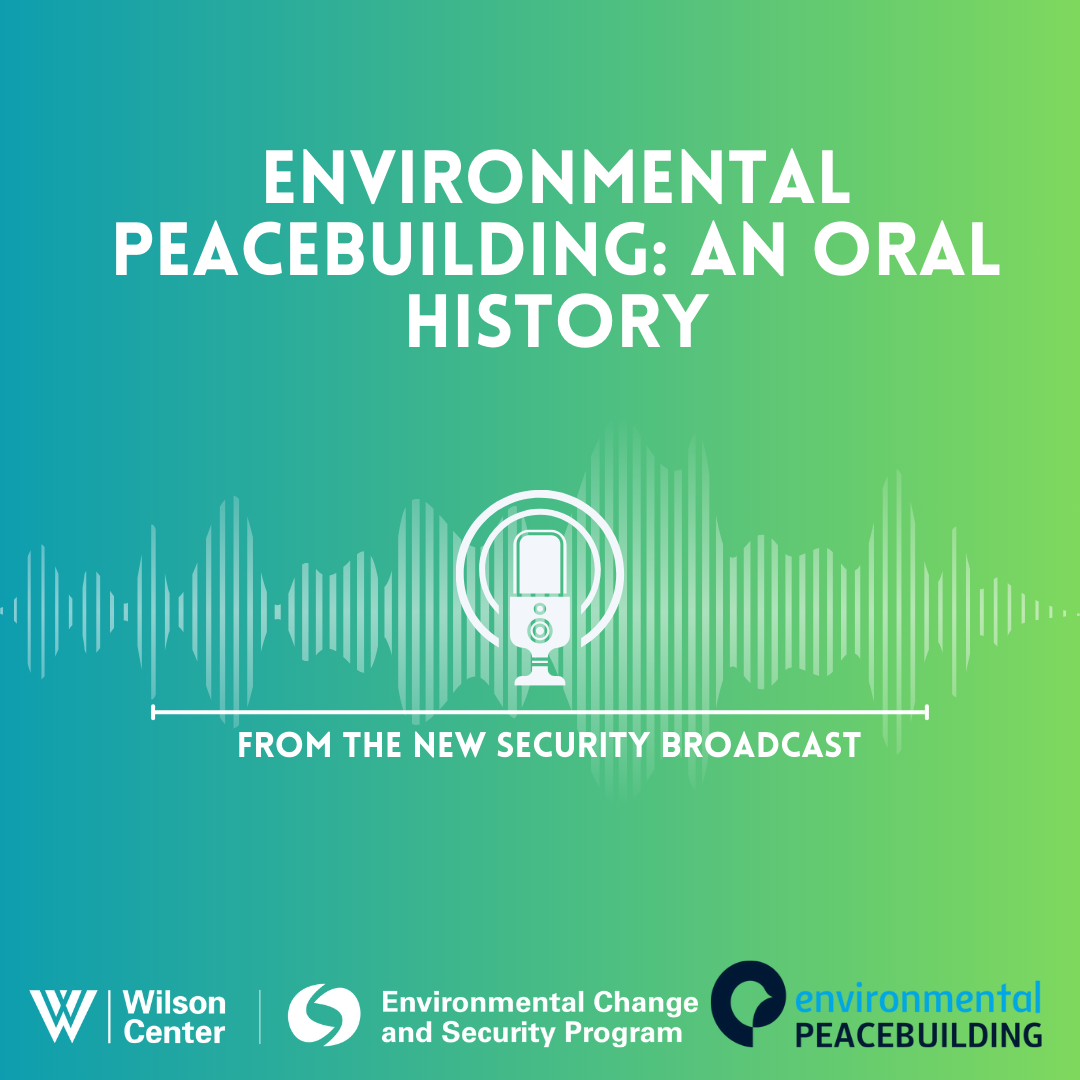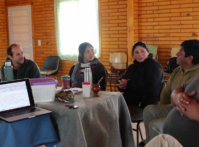-
Thought-leaders and Frontline Workers in Environmental Peacebuilding: An Oral History | Dr. Dhanasree Jayaram
May 10, 2024 By Claire Doyle
In today’s episode of New Security Broadcast, ECSP’s Claire Doyle speaks with Dr. Dhanasree Jayaram, Program Manager at Climate Diplomacy and Assistant Professor at the Manipal Academy of Higher Education in India. Dr. Jayaram describes what environmental peacebuilding looks like in the context of South Asia, how climate diplomacy connects to environmental peacebuilding, and how the field has evolved. In looking at the future of environmental peacebuilding, she also raises insights and questions that an environmental peacebuilding lens can help us consider as we push forward on climate action.
In today’s episode of New Security Broadcast, ECSP’s Claire Doyle speaks with Dr. Dhanasree Jayaram, Program Manager at Climate Diplomacy and Assistant Professor at the Manipal Academy of Higher Education in India. Dr. Jayaram describes what environmental peacebuilding looks like in the context of South Asia, how climate diplomacy connects to environmental peacebuilding, and how the field has evolved. In looking at the future of environmental peacebuilding, she also raises insights and questions that an environmental peacebuilding lens can help us consider as we push forward on climate action.
This episode is hosted in partnership with the Environmental Peacebuilding Association, as part of a special series featuring thought-leaders and frontline workers in environmental peacebuilding. Through interviews with a range of experts, the series explores how the field of Environmental Peacebuilding first emerged and how it’s being shaped by new approaches and new voices. Select quotes from the podcast are featured below:
On how Dr. Jayaram came to the field of environmental peacebuilding and what the landscape of the field looked like:
“Since I’m based in India, and I was primarily looking into environmental issues, especially from a security perspective in South Asia, and I think this is something that it’s unavoidable, especially when you’re looking into transboundary environmental issues within South Asia. So we have the Hindu Kush Himalaya region, which is shared by many countries, you also have Indian Ocean region. We also have many rivers that are shared by multiple countries in this region. And although there are a few agreements and treaties that have been signed between countries, there is still a huge gap in terms of finding avenues of effective cooperation among the countries….
“So it just kind of intrigued me as to why cooperation is not happening to the extent that one would expect, especially in a highly ecologically environmentally climatically vulnerable region like South Asia, despite having so many shared concerns. And as I was looking into some of these issues, I found that peacebuilding literature particularly has been looking into some of these issues at the transboundary level.”
On how she’s seen the field of environmental peacebuilding evolve:
“To a large extent, as I said, there is…a deeper acknowledgement of the systemic nature of the various crises that we are facing today. I think environmental peacebuilding has also evolved to to look at the linkages between these multiple crises that we are facing right. As I said, climate is one, but you also have health crisis, you also have an economic crisis, a debt crisis for many developing countries–all these are linked with each other at various levels. And I think what…environmental peacebuilding also is acknowledging is the fact that these are interlinked issues, and you need to address them in a holistic manner if you want to achieve the kinds of objectives that you envisage.”
On what the field should focus on more moving forward:
“It needs to be more inclusive of different voices. So yes, there is a greater pluralistic understanding of this, but at the same time, certain types of knowledge, for instance, may not be integrated well-enough into these discourses, like Indigenous knowledge…
“Issues of gender, gender equity, and gender justice may also be marginalized to some extent in these discourses on if you talk about practices—[and] they are much more marginalized, for that matter when you’re looking at policies. And although we talk about them in peace and security, for instance, and look at the role of women and conflict resolution and all of that, there is still not much understanding of how this can be an emancipatory process–how this can actually lead to peace building or long term sustainable peace itself.”
On the importance of working across disciplines:
“We are talking about more and more technologies to deal with climate change, to deal with biodiversity conservation, desertification…issues of [the] blue economy. We are [also] talking about technologies like solar radiation management. All these technologies would mean that there has to be, again, more deliberations, there has to be consensus building among countries among communities. Especially when we are talking about using a technology like solar geoengineering to protect the most vulnerable communities, it’s also a question of what do the most vulnerable communities want? Do they want this technology to be deployed? Or what kind of uncertainties exist? What kind of implications does this have for politics and governance? What kind of power dynamics really affect the deployment of various technologies like solar geoengineering, or for that matter, renewable energy technologies?
“…These are issues which are going to be very important to look at. And this is not something that just involves a certain discipline–it’s also important to then understand what technology it is, how it affects power dynamics, how ecologies intermingle with these technological interventions.”
Photo Credit: Wilson Center Staff
 A Publication of the Stimson Center.
A Publication of the Stimson Center.








